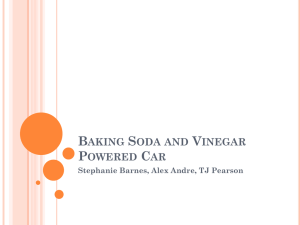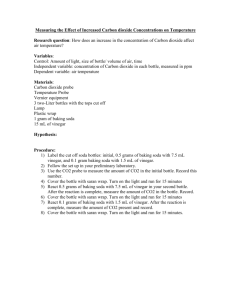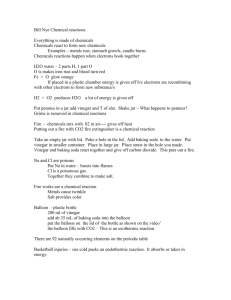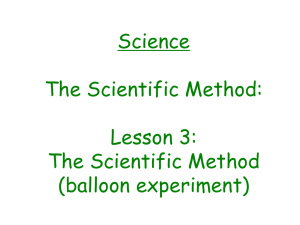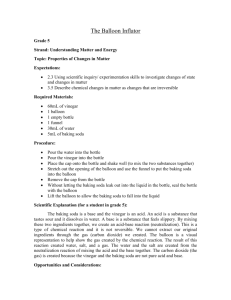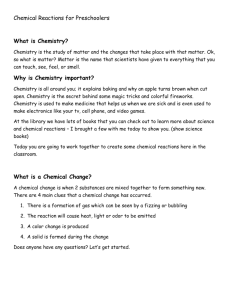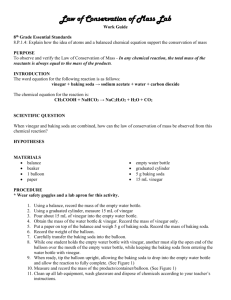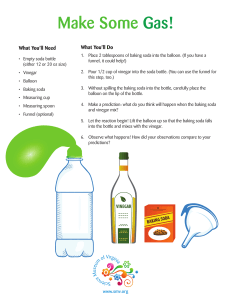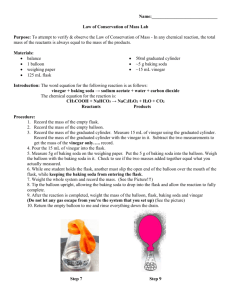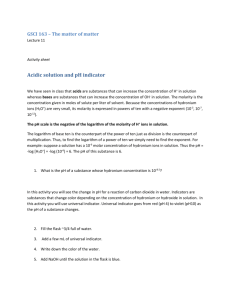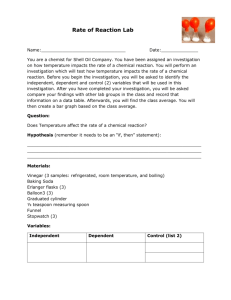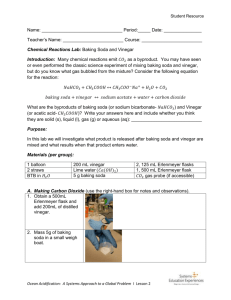files/ckimages/files/Balloon Blow Up CO2 Fire Extinguisher
advertisement
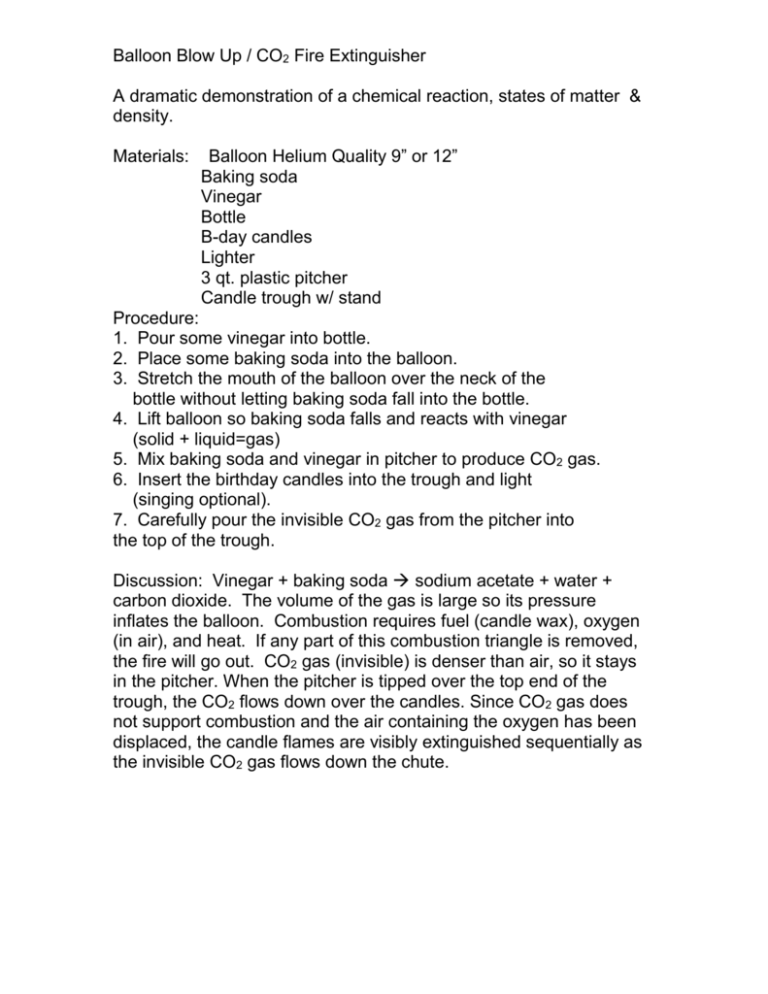
Balloon Blow Up / CO2 Fire Extinguisher A dramatic demonstration of a chemical reaction, states of matter & density. Materials: Balloon Helium Quality 9” or 12” Baking soda Vinegar Bottle B-day candles Lighter 3 qt. plastic pitcher Candle trough w/ stand Procedure: 1. Pour some vinegar into bottle. 2. Place some baking soda into the balloon. 3. Stretch the mouth of the balloon over the neck of the bottle without letting baking soda fall into the bottle. 4. Lift balloon so baking soda falls and reacts with vinegar (solid + liquid=gas) 5. Mix baking soda and vinegar in pitcher to produce CO2 gas. 6. Insert the birthday candles into the trough and light (singing optional). 7. Carefully pour the invisible CO2 gas from the pitcher into the top of the trough. Discussion: Vinegar + baking soda sodium acetate + water + carbon dioxide. The volume of the gas is large so its pressure inflates the balloon. Combustion requires fuel (candle wax), oxygen (in air), and heat. If any part of this combustion triangle is removed, the fire will go out. CO2 gas (invisible) is denser than air, so it stays in the pitcher. When the pitcher is tipped over the top end of the trough, the CO2 flows down over the candles. Since CO2 gas does not support combustion and the air containing the oxygen has been displaced, the candle flames are visibly extinguished sequentially as the invisible CO2 gas flows down the chute.
